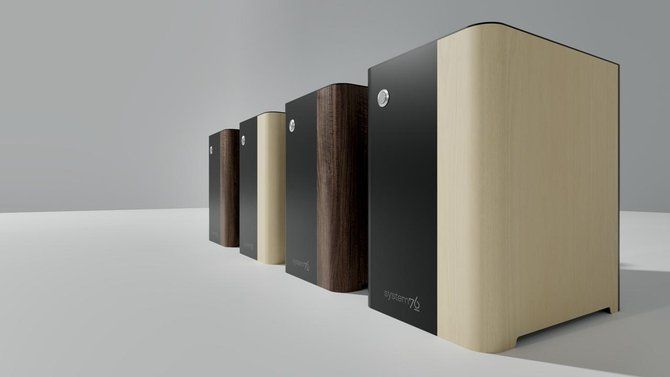It's a great time to love free and open software, free apps that don't try to exploit you for profit. For years, if you've wanted to use a free and libre operating system, such as Linux, then you've had to install them yourself.
Now there are a growing number of machines you can buy that come with Linux pre-installed, with hardware makers appealing to different types of free software users and different wallet sizes. Here are three companies and one charity attracting admiration from FOSS enthusiasts and growing attention from the broader public.
1. Raspberry Pi Foundation
The Raspberry Pi is the most mainstream consumer device that comes with a genuine GNU-based free and open source desktop interface. Whether you're making a set-top box, building a robot, or crafting your own Game Boy, a Raspberry Pi is ideal.
That's because the Raspberry Pi is a highly-functional computer with everything you need contained on a single board. You can buy one for around the price of dinner for two at a restaurant. You can upgrade to a more powerful model for the cost of appetizers and dessert.
With newer models, the specs have reached a point where you could use a Raspberry Pi as your desktop PC. Word processing and similar office work is not a problem. You can browse the web with numerous tabs open. Music and video stream just fine on the Raspberry Pi 4, even at high quality.
Thanks to affordable hardware, the Raspberry Pi Foundation has distributed free software to millions. This is all without trying to convince people that they need to abandon Microsoft Windows or Apple macOS. Many find the Raspberry Pi to simply be the most functional tool for the job.
2. Pine Microsystems
Pine Microsystems (commonly known as Pine64) is a company that exists to create hardware for the FOSS community. The ambition is not only to provide computers and mobile devices, but to make these available for cheap.
The Pine A64 chip is a piece of hardware like the Raspberry Pi, and another way to access free software. By sticking this chip inside a laptop chassis like the Pinebook, anyone can grab an affordable machine to code on. Incredibly, the Pinebook costs just $100 (plus shipping).
Pine Microsystems is also helping the community overcome an even bigger roadblock. Until now, developers have not had access to open phone hardware. This has limited Linux mobile OS makers to providing aftermarket options for aging devices such as the Nexus 5.
With the PinePhone, developers using Plasma Mobile and UB Ports have a far more open device to develop for. Unsurprisingly, it will only cost them $150. The PineTab does the same thing, but for tablets.
Pine Microsystems is notable not only for its ambition, but its approach. It works with the broader open source community to see what developers want and provide hardware that meets those needs.
Pine does not develop its own software because it believes the community is already capable of doing that. What developers need is accessible hardware.
Pine Microsystems has broader goals as well. The company sees low-cost hardware combined with free software as a way to help close the digital divide. It is working to donate machines to people in places where $100 is still quite a lot to ask.
3. System76
System76 is a Linux hardware manufacturer that first made its name shipping computers that came with Ubuntu pre-installed. While System76 remains small compared to the likes of Acer and HP, the company has grown substantially since those early days. So has its product line.
Today, System76 ships laptops ranging from slim ultrabooks like the Galago Pro to 17-inch desktop replacements like the Serval WS. With the Thelio line of desktop rigs, System76 is now in the business of providing its own customized hardware. These systems are among the most stylish options you will find, period, Windows and macOS desktops included.
It's not only the hardware that makes System76 an easy recommendation; the software support is great as well. The company now maintains its own Linux distribution known as Pop!_OS. Based on Ubuntu with added niceties (e.g. built-in proprietary graphics drivers, easy firmware updates), Pop!_OS runs on any PC. You can even enjoy improved power management options and some additional pre-installed GNOME extensions.
If you want a powerful Linux machine to crunch code or keep up with the latest Steam Proton games, System76 has what you need. System76 is easily the best choice for a functional mid-to-high-end Linux PC with great support whenever you encounter any issues.
4. Purism
System76 is the company I would most strongly recommend to someone looking to switch to Linux, but the out-of-the-box experience isn't for me. That's because both Ubuntu and Pop!_OS recommend proprietary software, and I've reached a point in my free software journey where that isn't functionality I desire.
If you feel the same way, there's a different company selling computers that don't nudge you toward any closed source code.
Purism began in 2014 from a crowd-funding campaign to create privacy-focused laptops running entirely free software. The resulting Librem line of laptops have delivered on that promise at the operating system level thanks to PureOS. This is Purism's customized Debian build that doesn't include proprietary code. Even the Linux kernel (not as open as you think) and the Purism app store are free of proprietary software.
Since the first iteration, Purism has gradually expanded the depth of that software freedom. Librem laptops now come with coreboot and a neutralized version of the Intel Management Engine where most of the code has been removed.
While there are still some proprietary bits that keep Librem laptops from getting the Free Software Foundation's "Respects Your Freedom" certification, Purism continues to work toward that goal. If things go as planned, the Librem 5 smartphone will have that certification before the laptops.
In the meantime, it still impresses me that you can now buy a sleek aluminum ultrabook that comes with a 100% free and libre Linux desktop.
If you're more inclined towards GNU in GNU/Linux and want to support efforts to provide truly free hardware, then you may be willing to pay the premium it takes to own a Librem device. But if you're looking for high specs, save money by buying machines with similar numbers from just about anyone else.
Are These the Only FOSS-Friendly Companies?
Hardly. If you want a computer that doesn't come with a Debian-based distro, or you want one that specifically comes with Debian itself, ZaReason will sell you System76-comparable hardware with a distro of your choice pre-installed. Slimbook sells what can be considered the flagship KDE computer.
And while I wouldn't exactly consider Dell a free software company, that multinational has a growing number of computers that come with Ubuntu, and they're now easier to find.
Interested in grabbing a Linux PC of your own? Here's a list of specific Linux computer models worth checking out.


